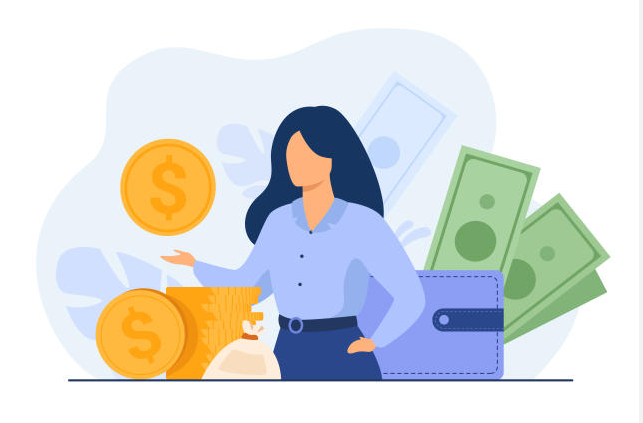
In life, unexpected expenses can often catch us off guard, leaving our short-term budgets stretched thin. While having an emergency fund or access to credit cards can help alleviate the financial strain, not everyone has these options readily available. The challenges of maintaining emergency funds have only intensified with the pandemic and rising inflation, making it even more difficult for many Americans to navigate sudden financial hurdles. Additionally, obtaining credit cards has become increasingly challenging, with lenders tightening eligibility requirements, particularly for those with lower credit scores.
However, there’s a silver lining: several convenient apps offer to provide funds upfront, bridging the gap until your next payday. These apps can offer a lifeline when you’re faced with unexpected bills or financial emergencies, providing much-needed relief during challenging times.
What Are Payday Advance Loans?
Payday advance loans provide a convenient solution for individuals facing short-term financial challenges, offering access to a portion of their upcoming paycheck in advance. This arrangement allows borrowers to cover unexpected expenses or emergencies without waiting until payday. However, the traditional model of payday loans is being replaced by app-based alternatives that offer similar services without the burden of interest charges. Instead of interest, these apps typically charge subscription fees or fees for expedited funding, sometimes supplemented by optional tips. While these apps offer convenience and accessibility, borrowers should carefully consider the costs and terms associated with each option to ensure they make the best choice for their financial situation.
With a variety of apps available in the market, it’s essential for borrowers to compare and evaluate each option before deciding which one to use. Factors to consider include subscription fees, funding timelines, repayment terms, and any additional charges or fees. By understanding the pros and cons of different apps, borrowers can make informed decisions and choose the option that best meets their needs while minimizing costs and potential risks.
Earnin
- Amount: $100 to $500.
- Fees: No fees are charged, but tips and additional services may be requested for recurring subscription fees.
- Speed: One to three business days, unless you opt for the Lightning Speed feature for faster processing.
- Repayment: Earnin automatically withdraws repayment from your bank account when your next paycheck arrives.
Earnin is a popular app designed to help you access your paycheck before payday. It allows users to withdraw a portion of their earned wages for hours already worked but not yet paid. The app doesn’t charge fees or interest but operates on a pay-what-you-think-is-fair model, where users can tip what they believe is reasonable for the service. With Earnin, you can get quick access to cash to cover essentials like groceries, bills, or unexpected expenses, helping to alleviate financial stress between paychecks.
Additionally, Earnin offers automatic overdraft protection for a monthly recurring tip of $1.50. Users can also access funds instantly by opting into the Lightning Speed feature, available for a fee ranging from $1.99 to $3.99, depending on the borrowed amount.
Dave
- Amount: $5 to $100 or up to $250 for customers with a Dave Spending Account.
- Fees: Optional $1 monthly fee, plus additional fees for faster transfers and tipping.
- Speed: One to three business days, unless you pay for faster delivery.
- Repayment: The repayment date is defaulted to your next payday, but you can change it manually.
Dave is an app that offers various financial services, including paycheck advances, budgeting tools, and overdraft protection.
Dave is handy for minor financial emergencies, but its $250 limit might limit its usefulness. You’ll need a Dave Spending Account to access this limit. Nevertheless, it’s a more affordable option compared to facing steep overdraft fees from your bank.
Similar to other apps, Dave needs access to your checking account to deposit and withdraw funds. Fortunately, Dave ensures to check your balance before withdrawing the loan to prevent a negative balance. While Dave doesn’t consider your credit score, you’ll need to provide basic income details, like recent paystubs or proof of direct deposits, to qualify for an advance.
Brigit
- Amount: $50 to $250.
- Fees: $9.99 a month. The free plan offers financial advice and budgeting tools, but not cash advances.
- Speed: Often same day, but within 24 hours at the most.
- Repayment: The repayment date is initially set to match your next payday, yet you have the option to adjust it manually within specific boundaries.
Brigit comes in handy for handling smaller unexpected expenses or bridging the gap until your next paycheck. Additionally, it provides a credit-building feature, which is beneficial for those aiming to enhance their credit score. However, the major drawback is that Brigit’s premium services are only accessible through a $10 monthly subscription fee, while the free version offers solely financial advice and budgeting tools.
To qualify for Brigit, your checking account must be active for at least 60 days with a positive balance. You should also demonstrate a consistent pattern of not spending your entire paycheck within a day, indicating your ability to repay any advances. Moreover, you need to exhibit at least three recurring direct deposits from an employer, totaling at least $800 per month.
Chime
- Amount: $20 to $200.
- Fees: No fees, but optional tipping.
- Speed: Instant after the initial set-up.
- Repayment: Chime will reclaim the advance on your next direct deposit, typically your paycheck.
Chime functions more as an overdraft protection tool rather than a payday advance service. With its SpotMe feature, you can establish a specific amount of overdraft protection, and the app will cover you if your checking account balance goes below zero. However, any transaction exceeding your set limit will be declined.
To qualify for Chime’s SpotMe service, you must have at least $200 in qualifying direct deposits. The service itself is free of charge, although tipping is optional.
MoneyLion
- Amount: $25 to $250. However, only MoneyLion checking account holders will get the largest amounts.
- Fees: Optional tipping, plus $4 or $5 for instant delivery. No fees for up to five business days.
- Speed: Instant with Turbo fee, 12-48 hours for MoneyLion customers, 3-5 days for non-customers.
- Repayment: MoneyLion automatically deducts the funds from your next paycheck. If the funds aren’t available, it will make repeated attempts.
MoneyLion is a financial platform that offers a range of services, including early paycheck access, cash advances, and credit-building tools. Through its Instacash feature, users can access up to $250 in advances with no interest or credit check, providing a convenient solution for short-term financial needs. MoneyLion also offers features like credit monitoring, personalized financial advice, and rewards for improving financial habits, making it a valuable resource for those looking to improve their financial well-being.
Current
- Amount: Up to $200 in overdraft protection.
- Fees: No fees, but must be a Current account customer.
- Speed: Instant.
- Repayment: The next deposit into your account will repay the overdraft amount.
Current offers a unique approach compared to other apps, positioning itself as a comprehensive online banking solution tailored to younger users dissatisfied with traditional banks. Their Overdrive feature provides up to $200 in automatic overdraft protection with no fees attached, but it’s exclusive to Current bank account holders.
To qualify for Overdrive, users need to set up a Current account and receive recurring direct deposits of at least $500 per month. Initially, the overdraft limit starts at $25 and can increase up to $200 based on regular account reviews. This service ensures users can make essential purchases even with low account balances, with the borrowed amount automatically deducted from their next paycheck. It’s important to note that Overdrive only applies to debit card transactions, excluding ACH transfers and ATM withdrawals.
Should You Use These Apps At All?

Except for Current, which functions as a bank account, most of these apps operate similarly. They provide short-term loans, usually a few hundred dollars, with the expectation of repayment within a week or two. While the allure of minimal or no fees may seem appealing, it’s essential to avoid relying on paycheck advance offers as a regular financial solution.
When you crunch the numbers on borrowing $200 until your next payday, the fees can quickly add up. Including subscription fees, instant money charges, and optional tips, the annual percentage rate (APR) for these loans often ranges from 150 percent to 300 percent. Despite claims that APR isn’t the best measure for these services, the costs remain exorbitant, especially compared to the average credit card APR of around 21 percent. While you may not pay traditional interest, these apps can still drain your finances if you’re in urgent need of quick cash.
In general, it’s advisable to minimize reliance on these apps. Explore alternative options such as obtaining a low-limit credit card, even if it’s secured, or seeking assistance from trusted family members. Frequent use of income-advancing apps may signal underlying budget issues that require reassessment. However, for sporadic and genuine cash flow emergencies, these apps can offer temporary assistance.
